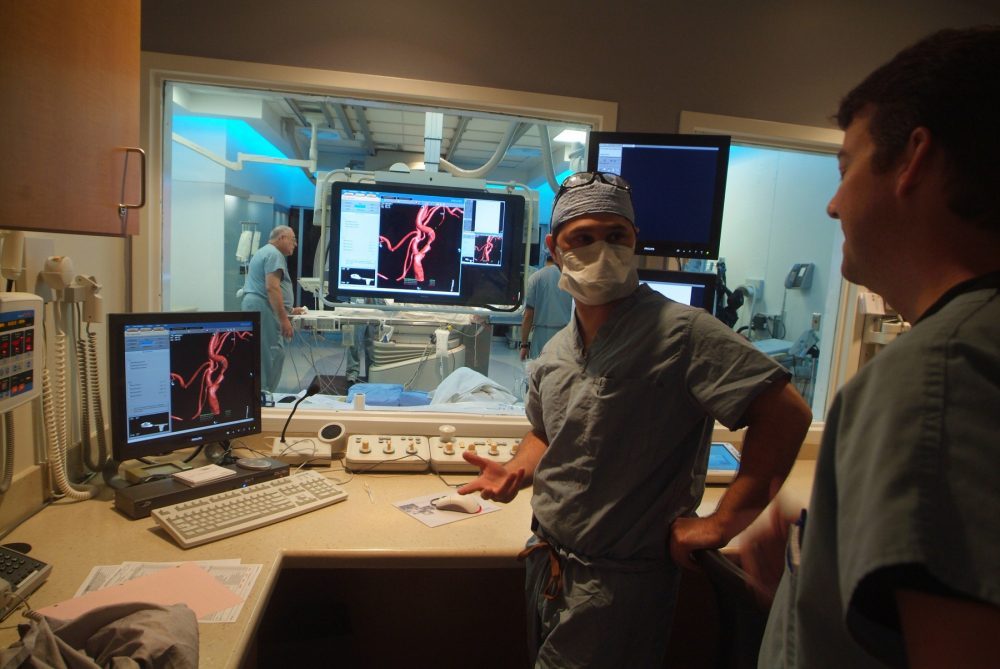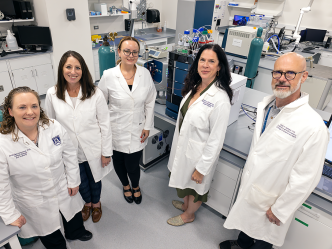This means AU Medical Center provides the highest level of specialized stroke care for patients with the most severe and challenging types of strokes and cerebrovascular disease, and helps set the national standards in stroke care.
A stroke or brain attack occurs when a blood vessel that carries oxygen and nutrients to the brain is either blocked by a clot or ruptures. When that happens, part of the brain cannot get the blood it needs, so brain cells die. Stroke is a leading cause of death and serious long-term disability in the United States, and especially Georgia, because it is located in the stroke belt.
During a rigorous two-day onsite review, Joint Commission experts examined the medical center’s compliance with Comprehensive Stroke Center standards and requirements, including 24/7 availability of specialized treatments, staff with the unique education and competencies to care for complex stroke patients and advanced imaging capabilities.
Last year, Augusta University Medical Center opened one of two new interventional radiology suites, becoming the first hospital in Georgia equipped with VasoCT imaging. This technology produces clear, three-dimensional pictures of the arteries and veins in the brain and neck that allow the hospital’s neurosurgery team to better pinpoint and open blockages. In addition, having two interventional suites means the hospital may treat more than one complex patient at a time, another Comprehensive Stroke Center requirement.
Surveyors also looked at post-hospital care coordination for patients and patient-centered stroke research efforts. Physician scientists at Augusta University are currently researching the ways in which leg compressions, stem cell therapy and insulin administration methods affect stroke recovery.
Comprehensive Stroke Center Certification was developed in collaboration with the Brain Attack Coalition and the American Heart Association/American Stroke Association. The AHA/ASA awarded AU Medical Center with its second consecutive Get With The Guidelines® Stroke Gold Plus Quality Achievement Award in 2012, and the hospital was named to the AHA/ASA Target: Stroke Honor Roll for excellence in emergency stroke care in December.
AU Medical Center extends quality stroke care to rural patients throughout the region through REACH Health, Inc., a telemedicine program pioneered in 2003 at Augusta University’s Medical College of Georgia. This hub-and-spoke network allows stroke specialists at AU Medical Center (the hub) to diagnose and treat stroke patients remotely at more than a dozen rural and a few larger community hospitals in Georgia and to transport those in need of surgery or more specialized neurointensive critical care to AUMC.
Those spoke hospitals are Burke Medical Center, Coliseum Medical Centers, Elbert Memorial Hospital, Emanuel Medical Center, Fairview Park Hospital, Doctors Hospital, Jefferson Hospital, Jenkins County Hospital, McDuffie Regional Medical Center, Morgan Memorial Hospital, St. Mary’s Hospital, St. Mary’s Good Samaritan Hospital, Tift Regional Medical Center, Washington County Regional Medical Center, West Georgia Hospital and Wills Memorial Hospital.
AU Medical Center also collaborates with neighboring emergency medical services or EMS teams by providing pre-hospital and interventional stroke care education, covering everything from field recognition of stroke to proper patient transport.
 Augusta University
Augusta University




